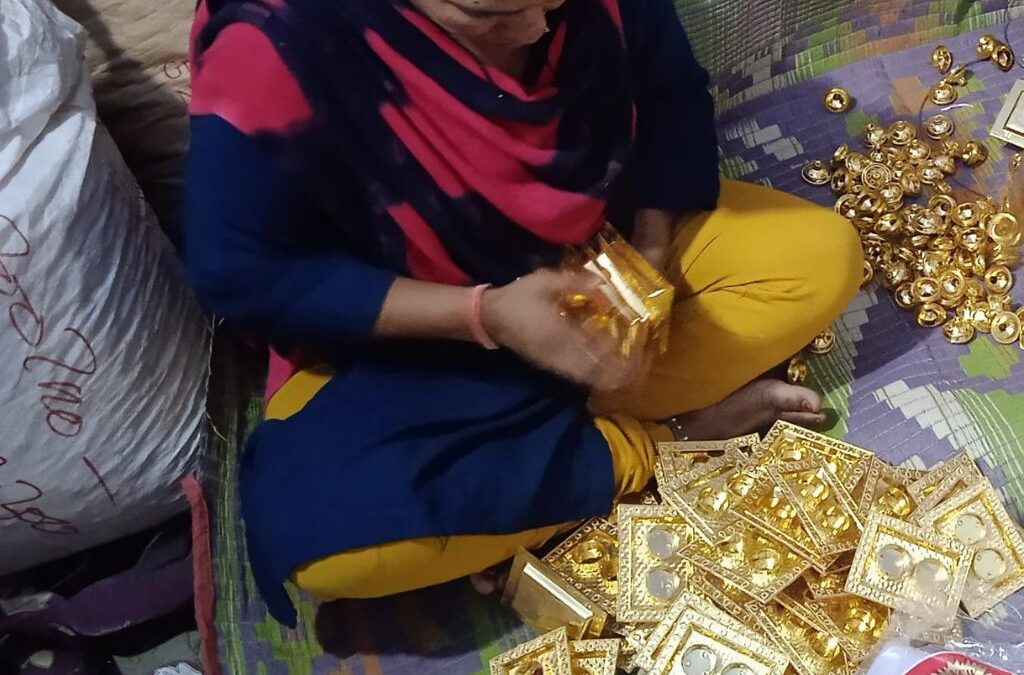Rani* is 35 years old and originally from West Bengal. After her husband passed away from cancer, she received no support from her in-laws. With no one else to turn to and three children to care for, she returned to her parents’ home. But she knew she couldn’t rely on them for long, so she began looking for work. A friend told her about job opportunities in Mumbai and convinced her to come along. However, instead of helping her find work, the friend brought her to a red-light area in Bhiwandi.
Rani did not want to be there. For seven months, she was forced to work and was not paid even once. To cope, she began chewing tobacco and became irritable and withdrawn. She didn’t trust anyone and found it hard to focus or think clearly. She didn’t know the local language well, which made her feel even more lost. At this time, Sahaara’s team met her during their field visits. Rani was quiet and hesitant to speak at first. But with regular contact and kind conversations, she slowly began to open up.
The team offered her mentoring, counselling, and guidance on how to manage her finances. She also took part in a few training sessions where she learned to make cloth bags. Sahaara helped her with medical care during the pandemic and gave her support when she was unwell.
Rani underwent the micro-entrepreneurship training and this created an excitement within her to start a small business and take steps towards becoming free from the sex trade. She was given basic literacy classes as well which improved her confidence. The Sahaara staff even spoke with her partner, who became a strong support. Together, they helped Rani move out of the red-light area and into a safer neighbourhood.
Her partner said, “We are thankful to Sahaara for helping us relocate. It gave Rani the chance to live a better life.” With her children back in her hometown—her sons working and her daughter continuing her education—Rani is now living with more peace and hope. She is no longer part of the trade and is looking forward to starting a small vegetable-selling business in her new area.
Rani says, “Sahaara stood with me during my darkest days. They helped me when I was sick, gave me confidence, and showed me that I can live a different life. I know I can count on them.”
Today, Rani is safe, hopeful, and making plans for her future. She is no longer stuck in a cycle of pain and fear. With encouragement and support, she is taking steps towards becoming self-reliant and bringing stability to her life once again.
(Names changed to protect identities.)

